If You Are Always Tired, Experts Say To Avoid These 14 Things Before Bed For A Better Night's Rest
The house is too quiet. Did I lock the front door? I forgot to respond to that email, again. If I fall asleep now, I’ll only get six hours. Why can’t I sleep? Do I have to pee? Why does my back hurt? Maybe I’ll just look at my phone until I feel tired. If I fall asleep now, I’ll still get five and a half hours...
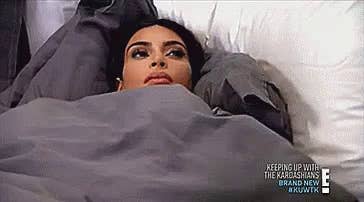
Do these thoughts sound familiar? If you’re one of the 33% of adults, 52% of pregnant women, or 36% to 88% of COVID-positive people who struggle with insomnia, then you’ve probably had your own set of racing, random thoughts keeping you up at night.
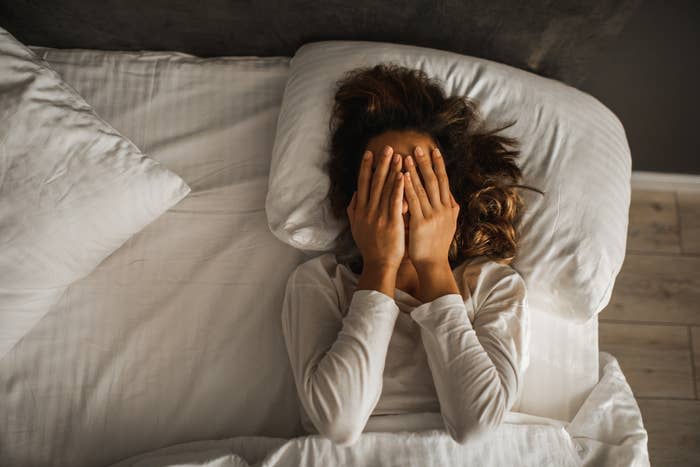
Whether you suffer from sleep onset insomnia (which makes it hard to relax in bed and fall asleep at night), sleep maintenance insomnia (which makes it difficult to stay asleep through the night), or both, it can lead to frustrating daytime impairments, as the Sleep Foundation notes. Sleep deficiency affects your mental health, physical health, quality of life and safety — and it is way too common. The American Sleep Association says that although adults need seven to nine hours of sleep at night, roughly a third of people report getting less than seven hours of sleep over a 24-hour period.
As it turns out, many of our daily habits can make insomnia worse. So, we spoke to experts for advice on what mindless habits should be avoided to get better sleep. Their answers were (literally) eye-opening.
1.Looking at screens before bed.
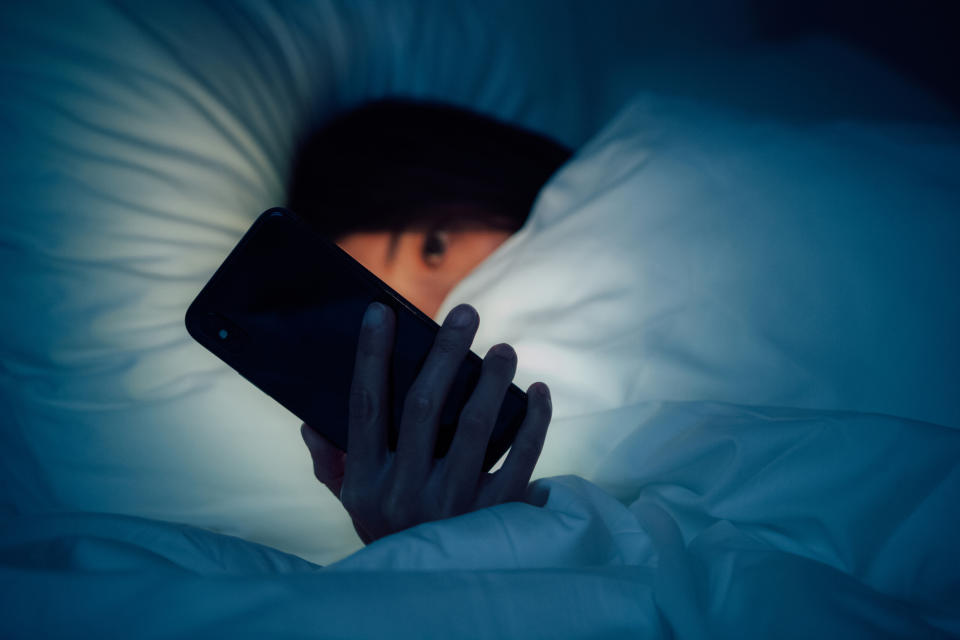
The blue light coming from your phone, tablet and TV screen has been shown to suppress melatonin, a hormone that helps regulate your circadian rhythms and lets you get better sleep. This “makes it more difficult for people to fall asleep and causes increased alertness in brain waves,” said Dr. Sasha Hamdani, a board-certified psychiatrist and ADHD clinical specialist.
Even if you use blue-light filters or switch your devices to night mode, looking at screens before bed can still affect sleep by keeping your brain “active and engaged,” according to Hamdani. “We are seeking dopamine release that comes when we see something that is exciting or interesting,” she said. “When your brain is engaged and active, it is less likely to shut off.”
2.Having the TV on in your bedroom.
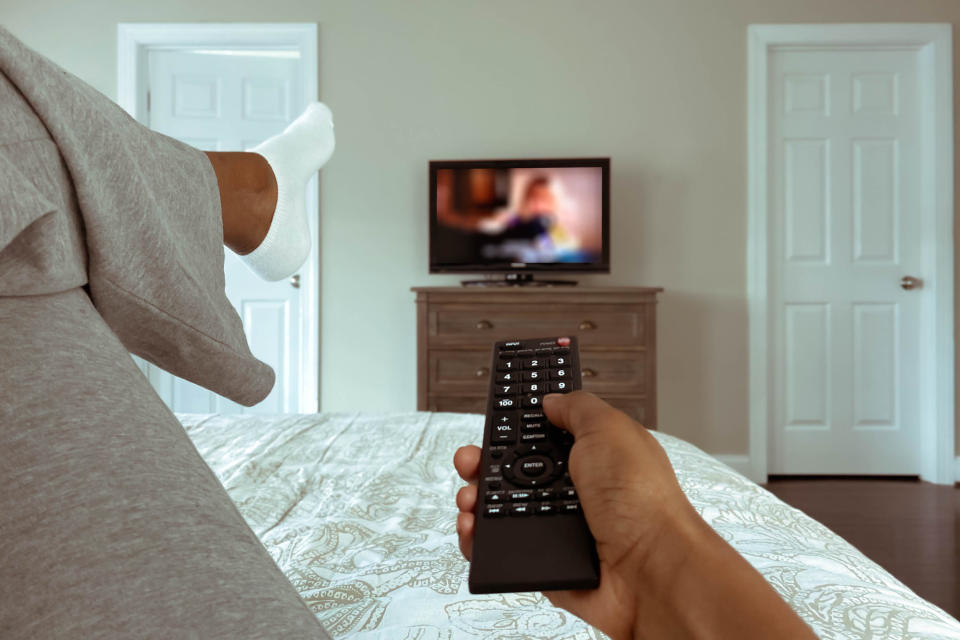
Falling asleep to the TV may seem nice, but it’s actually not relaxing for our bodies. This type of mindless viewing keeps people awake “way longer than they intend,” said Jennifer Weber, director of behavioral health for PM Pediatrics Behavioral Health. “This holds true for passive usage as well, such as having a television on in the background even when engaged in other activities.”
The “constant chatter and loud noises” don’t allow us to settle ourselves for sleep, according to Weber. “We may feel pressure to finish an episode or lose track of time entirely,” she said.
3.Engaging in social interaction.
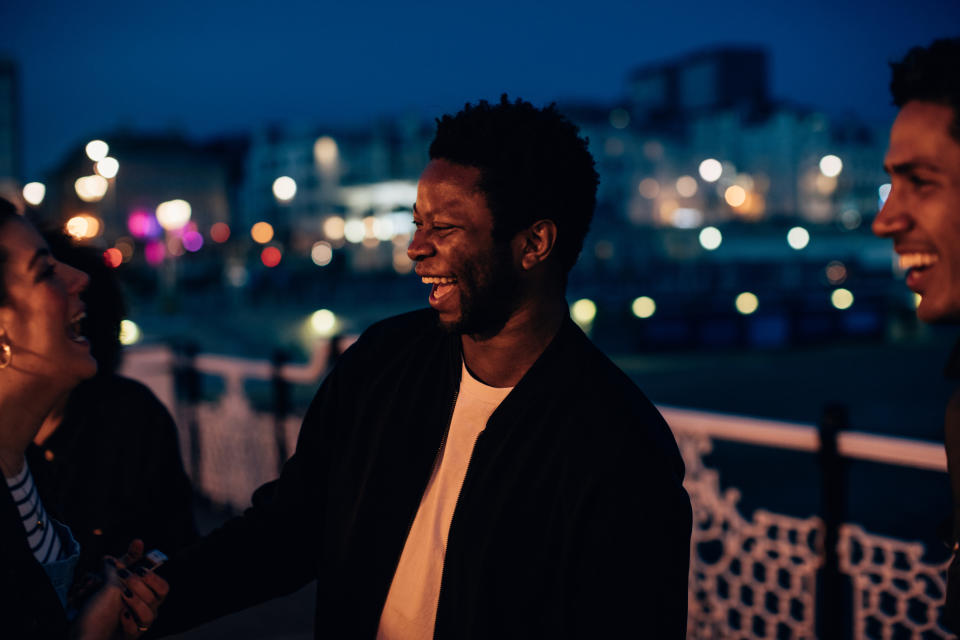
Catching up with friends is great — but it shouldn’t be done before bed, said Li Aslund, a sleep expert at Sleep Cycle. “Social interaction is actually a cue that signals to the body clock to stay vigilant and awake. Avoiding too much social interaction before bed can help the body to wind down, get sleepy and eventually fall asleep.”
Weber says social media also falls under this category. It can lead to negative thoughts, as people tend to compare themselves to others online. “Feelings of self-doubt, jealousy, and sadness are associated with ruminating and negative automatic thoughts that can be extremely difficult to shut off,” she said.
4.Working from your bed — at any time of day.
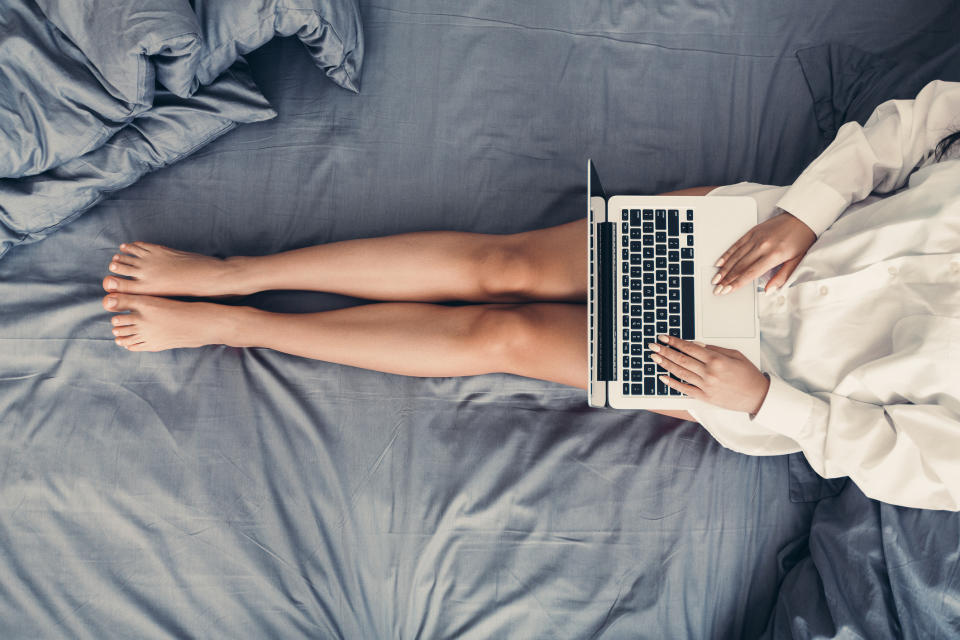
Though many people now work from home due to the ongoing pandemic, try to avoid the temptation to check emails or work from bed.
“Separation of work and sleep areas is extremely important, especially as many people are working remotely,” said Danielle Roeske, vice president of residential services for Newport Healthcare. “Working from the same place you sleep may make it harder to concentrate on work, making you less productive, then making it harder to fall asleep. Our brains receive mixed signals of the bedroom being a place usually reserved for rest, but we’re wanting it to be alert and do work instead.”
Even responding to one more email before bed can affect your sleep. “Engaging in work-related activities in bed will reduce the bed-sleep relationship, making it more difficult for the brain to understand that time has come to wind down, fall asleep, and stay asleep throughout the night,” Aslund said.
5.Reading a thriller.
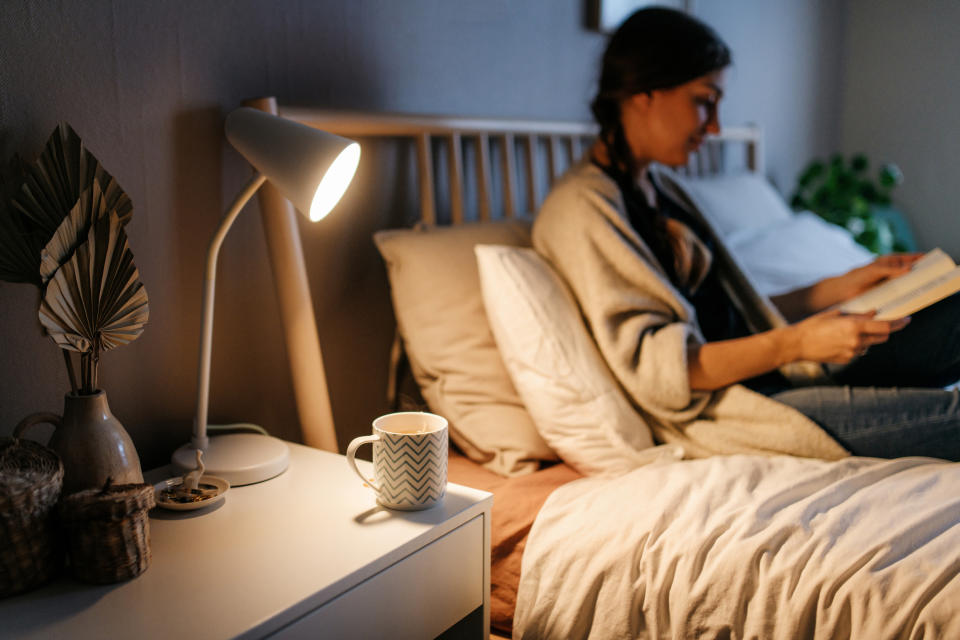
Although reading can be relaxing, a thriller can keep you tossing and turning after lights out.
“A thriller is meant to keep you in suspense and be a page-turner,” said Joanne Frederick, a licensed professional mental health counselor. “This type of book keeps your adrenaline going and activates a stress hormone called cortisol. While this may be intriguing during the day, it’s the worst thing to induce and maintain sleep.”
She added that “a violent, scary, or intense book can stay in your subconscious mind as you fall asleep and can return in the form of unsettling dreams that can cause anxiety upon waking, or interrupt sleep.”
Instead, read something light and relaxing, or turn to apps like Calm, which have adult fairy tales available to download. “These stories are soothing and lull one to sleep with pleasant imagery, and nothing jarring that will put negative thoughts into the conscious or subconscious mind,” Frederick said.
6.Eating just before bed.
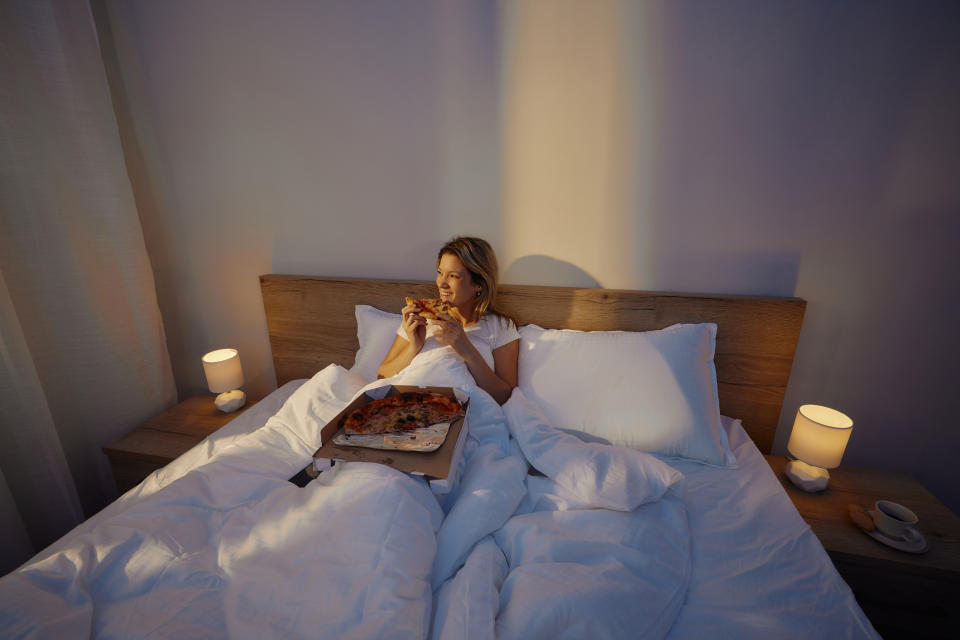
Eating dinner late at night might seem more convenient, but Frederick said this habit is detrimental to sleep. “The body needs time to digest properly, and this occurs when you are up and moving,” she said.
On the other hand, not eating before bed can affect your sleep as well. “If you’re lying there with your stomach grumbling, you aren’t going to be able to get comfortable enough to sleep,” said Katherine Hall, a sleep psychologist and sleep coach at Somnus Therapy. “If you find yourself regularly feeling hungry in bed, consider a light snack close to bedtime — this can help you find the right balance.”
Throughout the day, consider eating more fiber and less saturated fat to help you sleep. “A study found that eating more fiber increased the time people spent in deep, slow wave sleep,” said Dan Ford, a sleep psychologist with the Better Sleep Clinic. “On the other hand, eating more saturated fat resulted in less deep sleep, while a higher intake of sugar was associated with more arousals from sleep. These foods increase cortisol, which is a stress hormone and likely to wake you up.”
7.Exercising too close to bedtime.
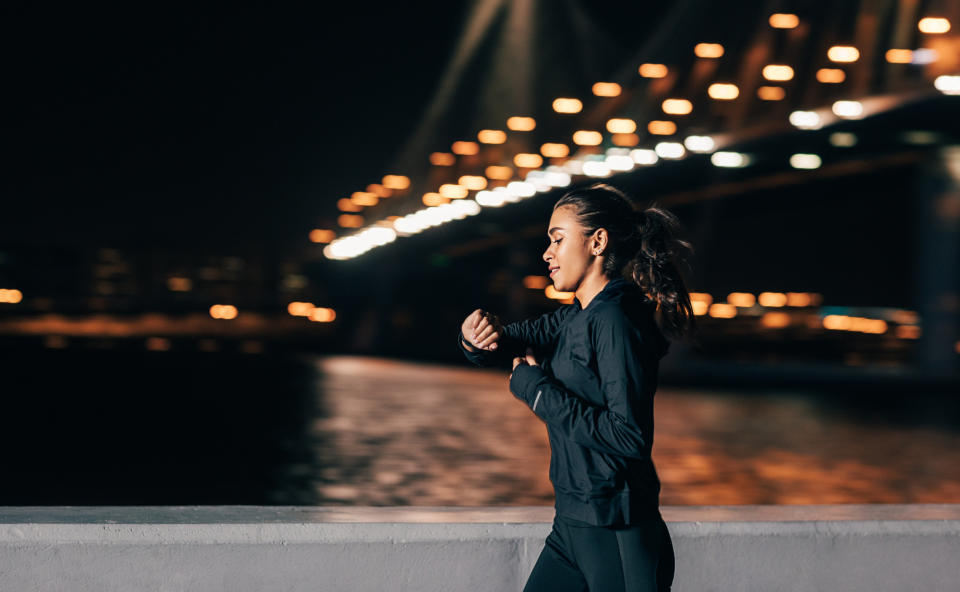
Exercising is a great way to regulate sleep ― unless you do it right before bed.
“Exercise can help increase the amount of slow wave (or deep) sleep you get, allowing the brain and body to rejuvenate,” Roeske said. “Exercise can also help to stabilize your mood and decompress the mind to allow you to fall asleep better. However, exercising too close to bedtime can get your endorphins pumping, and you may feel more wired and restless. That can make it harder to fall asleep.”
8.Drinking alcohol before bed.
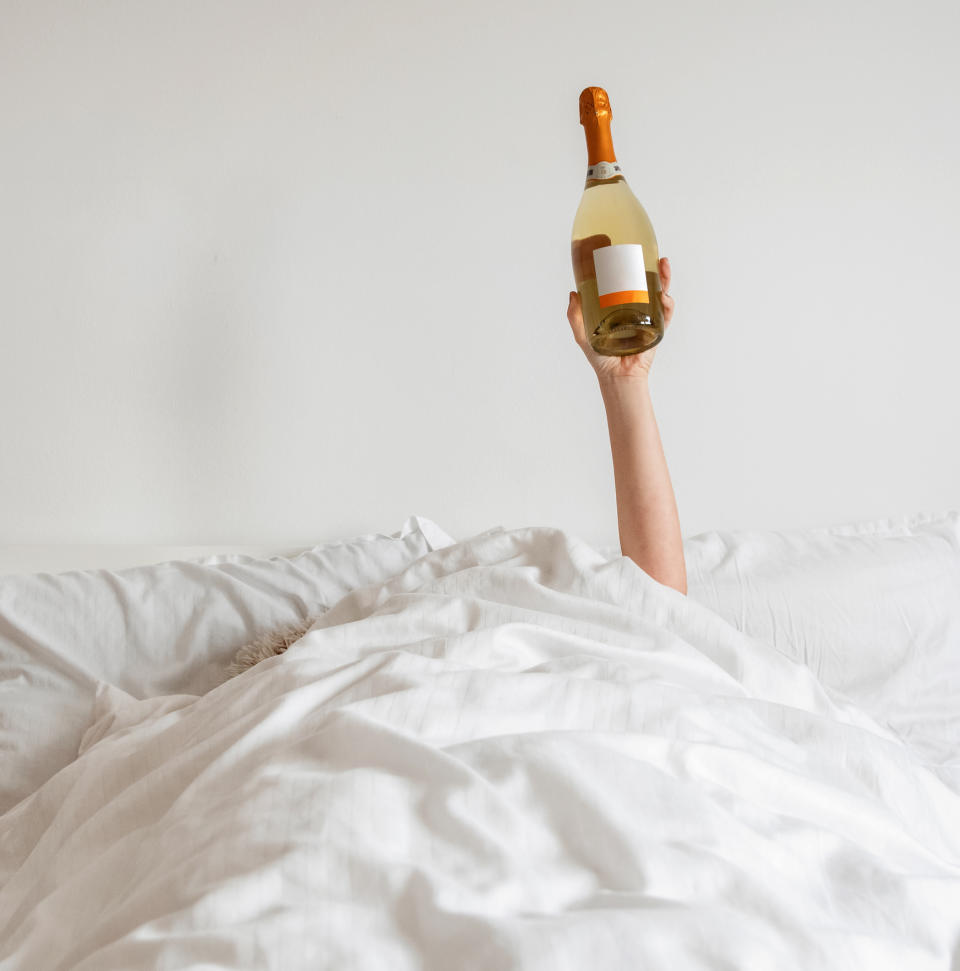
“Drinking alcohol before bed can cause people to lie awake at night,” said Nathan Brandon, a licensed psychologist. “Alcohol is a central nervous system depressant, so it makes you feel sleepy, but your brain doesn’t go into deeper stages of sleep.”
Frederick noted that drinking can also make you need to use the restroom more in the middle of the night, leading to sleep disruptions.
9.Drinking coffee too late in the day.
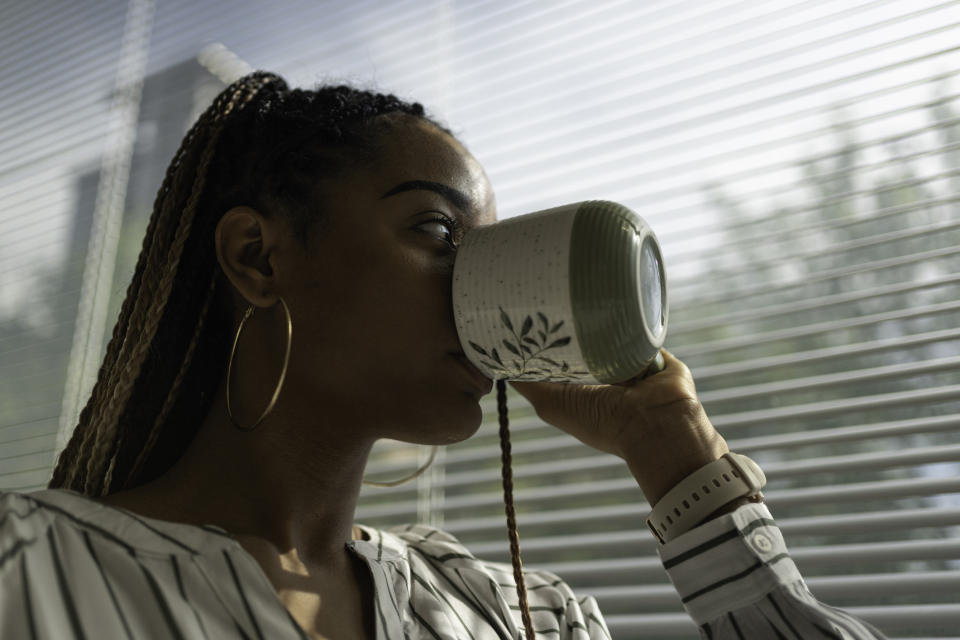
Beverages with caffeine ― like coffee, sodas and energy drinks ― famously keep people awake at night.
Hall suggested you stop drinking coffee by early afternoon. “The general rule you should use is to try not to have anything containing caffeine from six hours before going to bed,” she said. “If you do fancy a hot drink during this period, try herbal teas or decaffeinated drinks instead.”
10.Not getting enough sunlight.
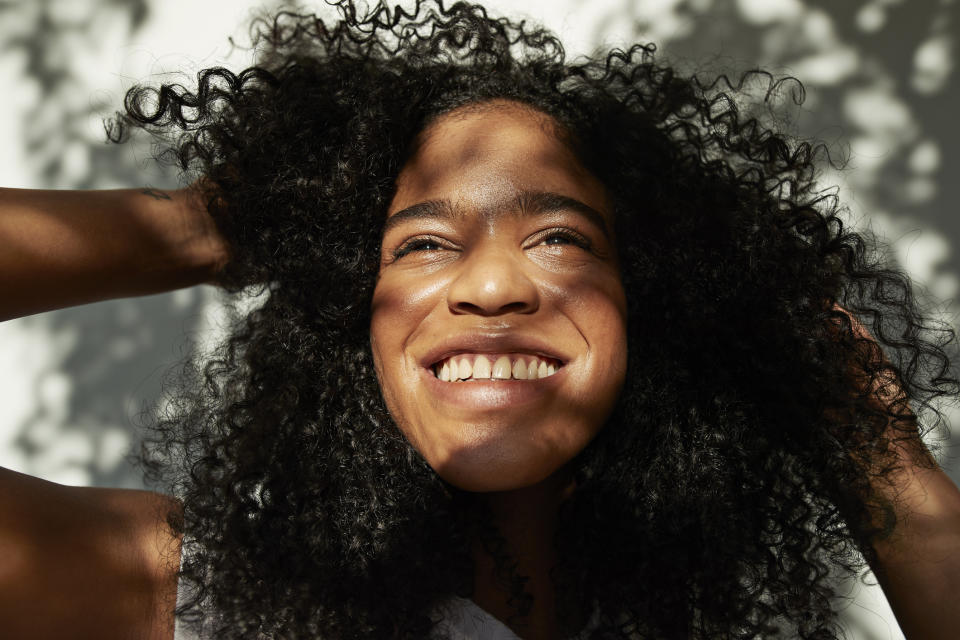
If you work inside all day, it could affect your sleep. Combat this by spending a little time in the sun every day. “Getting outside in the natural light is very beneficial for regulating your circadian rhythm — our internal body clock — which determines when we should sleep,” Hall said.
“Light is the most powerful cue for the circadian rhythm, responsible for regulating our sleep-wake pattern,” Aslund said. “Depending on the time of the day, we can use light to help us with the regularity of this system. Bright light in the evening has an exciting effect on our brain that can delay sleep onset, while daylight in the morning will actually help us to fall asleep at night.”
11.Having inconsistent sleep and wake times.
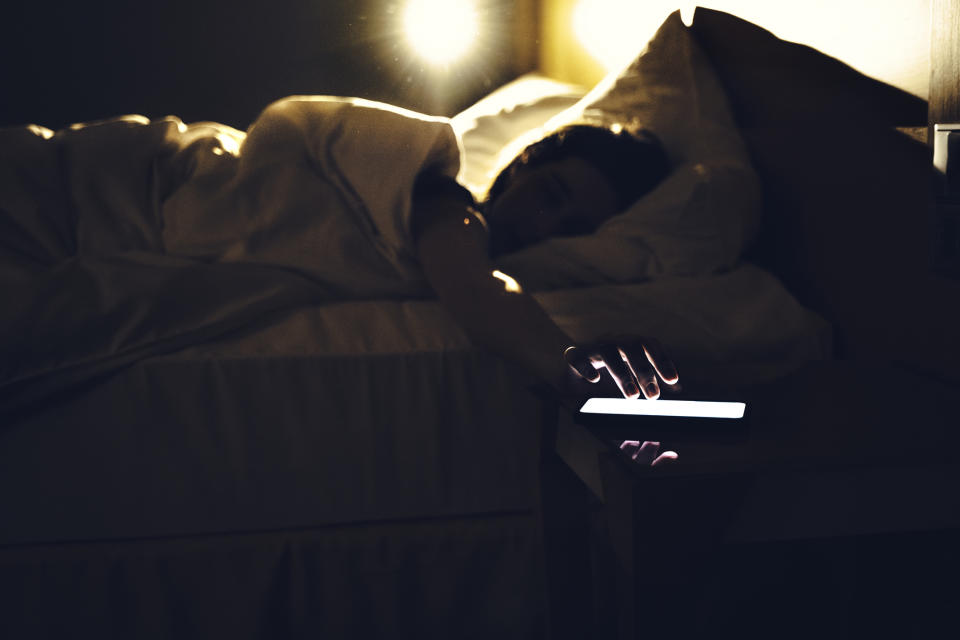
Going to bed early one night, staying up late the next — then taking a long nap — can all affect our sleep. “Try as hard as you can to wake up at the same time (even if you are very tired in the morning) and avoid naps,” Hamdani said. “This is going to ensure that you are tired at nighttime, which helps regulate a more normal sleep-wake cycle.”
To help make this easier, Aslund recommends tracking your sleep and habits to see patterns over time and to understand what really works for you. “Improving your sleep is a marathon rather than a short race,” she said. “Make sure you give yourself enough time to evaluate any improvement after changing your habits.”
12.Not giving yourself enough wind-down time or setting a bedtime routine.
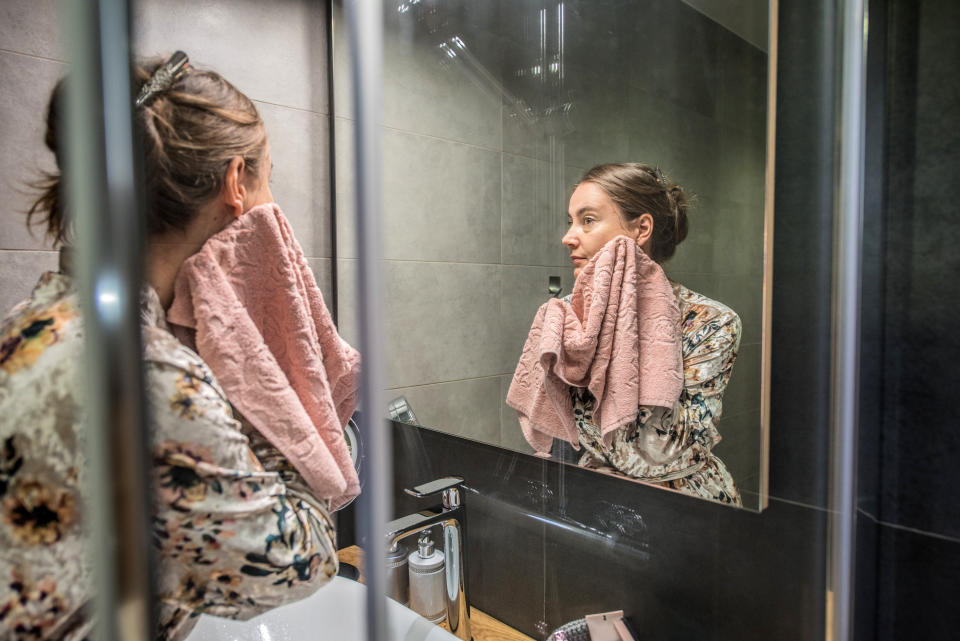
“Put a buffer zone between the day and the time you switch out the lights for sleep,” Ford suggested. “This can be 30-60 minutes long and can consist of self-care activities, such as taking a hot shower before bed or doing gentle yoga, mindfulness, journaling, progressive muscle relaxation or reading.”
13.Not having a calming sleep environment.
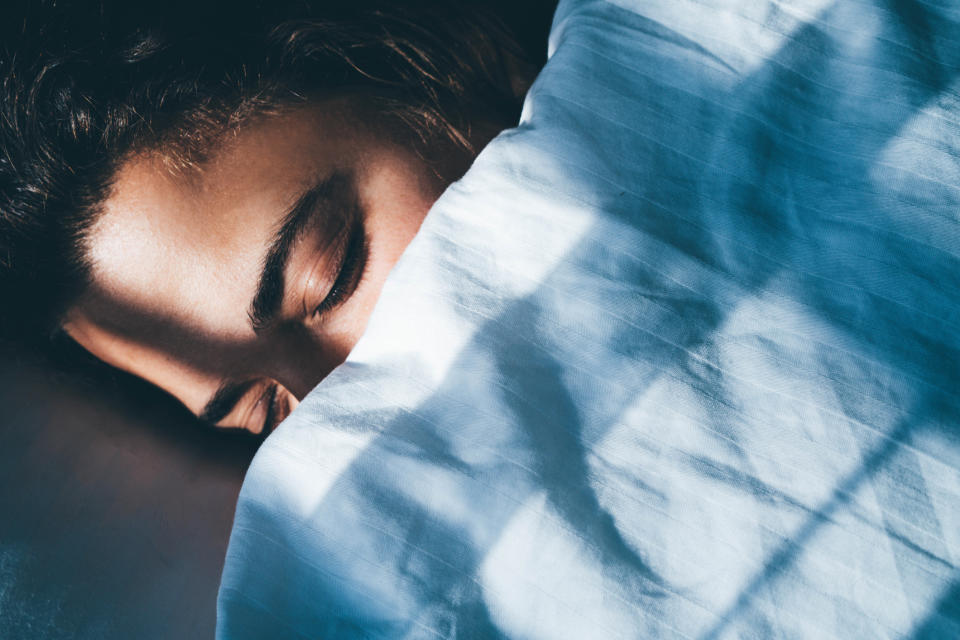
Where you sleep matters, too. If possible, make your bedroom “a calming, peaceful space that is optimized for sleep,” Hall said.
Keeping your bedroom clean and organized is important. “A calm and decluttered space can help you relax and fall asleep easier,” Aslund said. “Taking time to prepare the bedroom for sleep can be part of a bedtime routine that will help the mind and body to wind down.”
14.Ruminating over your thoughts.
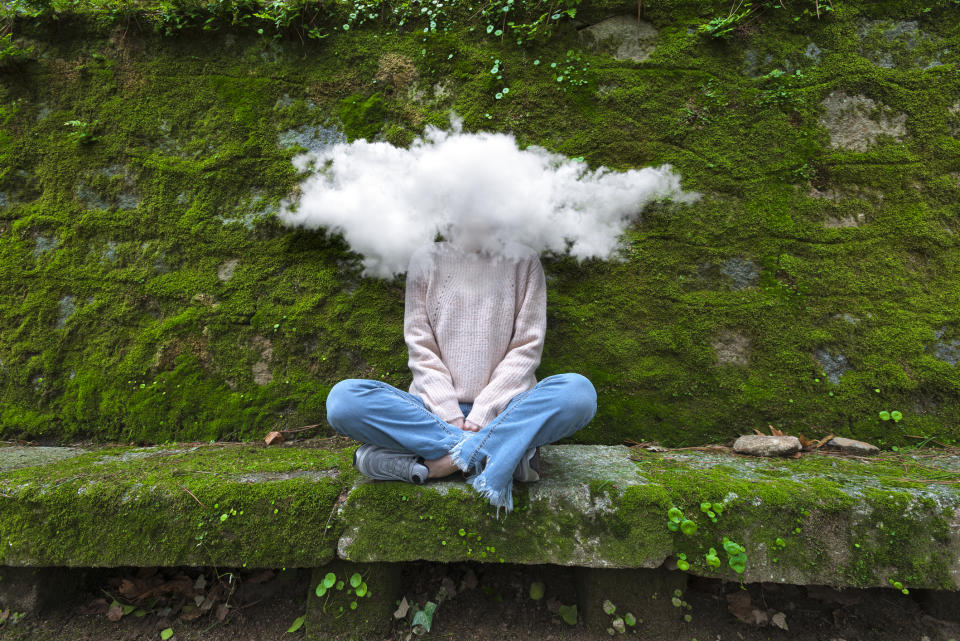
Thinking about your to-do list or engaging with anxious thoughts? Yeah, also not a good way to promote calm sleep.
“Bedtime is often the only time of the day people have to be alone and still with their thoughts,” Frederick said. “The problem is, if not used constructively, that can lead to racing thoughts of anxiety about the next day, the upcoming week, finances, romantic life, and children. When settling into bed, it’s best to keep a notebook or journal by your bed and put these thoughts on paper so that they are released from your brain.”
And please keep in mind: Some people do have undiagnosed sleep disorders.
If you’ve tried to change these habits and are still struggling with sleep, you could be experiencing an undiagnosed sleep disorder.
“There are real sleep disorders that can impact on a person’s wakefulness at night,” Ford said. “Delayed sleep phase disorder often manifests as not being sleepy in the evening, and people find themselves up and doing things like scrolling social media. They believe they are ‘procrastinating’ bedtime, but in reality, they have a disorder of the body clock that means they are doing the activities because they aren’t sleepy, not [that] they aren’t sleepy because of the activities.”
To help you get the best night’s sleep you can, make an appointment with a sleep disorder specialist. Prioritizing sleep is important.
This article originally appeared on HuffPost.

